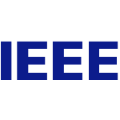In this work, we analyze the circumstances under which social influence operations are likely to succeed. These circumstances include the selection of Confederate agents to execute intentional perturbations and the selection of Perturbation strategies. We use Agent-Based Modelling (ABM) as a simulation technique to observe the effect of intentional stance perturbations on scale-free networks. We develop a co-evolutionary social influence model to interrogate the tradeoff between perturbing stance and maintaining influence when these variables are linked through homophily. In our experiments, we observe that stances in a network will converge in sufficient simulation timesteps, influential agents are the best Confederates and the optimal Perturbation strategy involves the cascade of local ego networks. Finally, our experimental results support the theory of tipping points and are in line with empirical findings suggesting that 20-25% of agents need to be Confederates before a change in consensus can be achieved.
翻译:暂无翻译




